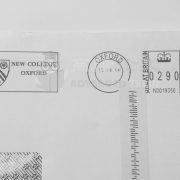英国代写:经济改革
英国代写:经济改革
我们将讨论在中国管理补偿的背景。经济改革之前,所有的组织都是在政府的控制下。没有激励和经理支付正常的公务员工资。发生在1978年的经济改革和决策责任改变了私营企业从政府。之后,经理有一些权威的决策和他们公司有一些自主权。但控制仍在政府的手中。所以经理仍然没有多少动力去增加利润的组织,因为他们仍然得到相同的公务员工资没有任何激励(园等,1994)。有一个两难的经理有一些自主权和控制仍在州政府。所以,它创造了混乱决定薪酬的经理。
1990年发生的劳动力市场改革,它改变了很多事情。的企业招聘新员工的自由,他们被允许开始自己的工资系统但工资应该由政府设定的范围内。因为这个高管的工资大幅增加。这是起点当中国企业开始关注相关的盈利和他们经理的激励与组织的性能。经理人支付每年不断增加,这是一个最好的激励力量,使员工对组织的发展。平均工资高管在2002年、2004年和2005年是13.022万元,分别为20.81万元和19.625万元。
英国代写:经济改革
We will discuss the managerial compensation background in China. Before the economic reforms all the organizations were under the control of state government. There were no incentives and mangers were paid the normal civil service pay. Economic reforms took place in 1978 and decision making responsibilities were changed from the government to the private firms. After that managers got some sense of authority in terms of decision making and they got some autonomy in the firms. But the control was still in the hands of government. So managers were still not that much motivated to increase the profits for the organization because they were still getting the same civil service pay without any incentives (Groves et al, 1994). There was a dilemma as the managers got some autonomy and control was still under state government. So, it created confusion to decide on the compensation of the managers.
In 1990 labour market reform happened and it changed so many things. The enterprises were given the freedom of recruiting new employees and they were allowed to start their own salary systems but the wages should have been within the range set by the government. Because of this the salary of top executives increased drastically. This was the starting point when Chinese firms started focusing of profit making and they related the incentives of the managers with the performance of the organization. The managers’ pay has been increasing continuously every year and this is one of the best motivational forces to align employees towards the growth of the organization. Average salary for top executives in 2002, 2004 and 2005 was RMB130.22 thousand, RMB208.10 thousand and RMB196.25 thousand respectively.








